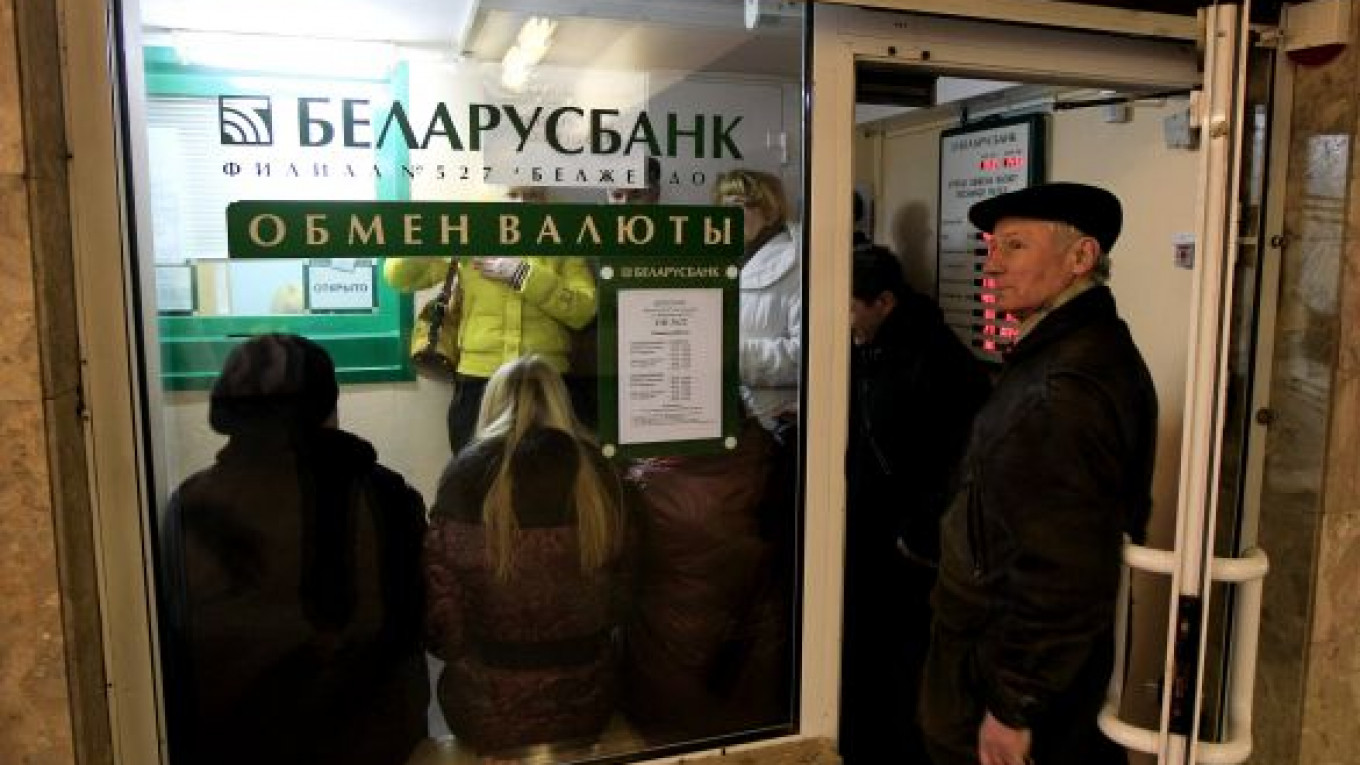sMINSK — The Belarussian ruble will lose about a third of its value next week, when banks will be free to trade the currency beyond its current official peg, according to economists.
The central bank announced the free float on Tuesday as it tries to ease the country's financial crisis.
International financial institutions have been calling for a sharp devaluation to help make exports cheaper and more competitive. The devaluation, however, is also expected to cause a surge in inflation and eat into households' purchasing power and could even cause runs on banks.
Starting next week, banks will be able to buy and sell the Belarussian ruble at a rate they will determine in open trading, the bank's deputy chief Nikolai Luzgin said. The banks have so far been allowed to trade the ruble within a 10 percent band off the official rate.
The free float will initially affect banks. It was unclear how currency rates on the street will be affected, though confidence in the ruble has plummeted in recent months.
The government will "take extra steps to balance the situation on the domestic currency market" after next week's free float trading, Luzgin said.
The U.S. dollar stood at 3,074 Belarussian rubles on Tuesday.
Stanislav Bogdankevich, former chief of the Belarussian central bank, said he expected the ruble to drop by one-third after the float.
"It's a half-measure," he said in an interview. "They should have announced a devaluation, but authorities are not psychologically ready for this."
The central bank also indicated on Tuesday that Belarussian importers of medicines and natural gas would be allowed to buy foreign currency at preferential rates. This could create a black market for foreign currency, experts said.
Belarussian authorities also announced budget cuts in a bid to shore up confidence in public finances and support the currency. Deputy Prime Minister Sergei Rumas said Tuesday that financing for investment programs would be cut by 30 percent and for the construction of state offices by 20 percent.
A Message from The Moscow Times:
Dear readers,
We are facing unprecedented challenges. Russia's Prosecutor General's Office has designated The Moscow Times as an "undesirable" organization, criminalizing our work and putting our staff at risk of prosecution. This follows our earlier unjust labeling as a "foreign agent."
These actions are direct attempts to silence independent journalism in Russia. The authorities claim our work "discredits the decisions of the Russian leadership." We see things differently: we strive to provide accurate, unbiased reporting on Russia.
We, the journalists of The Moscow Times, refuse to be silenced. But to continue our work, we need your help.
Your support, no matter how small, makes a world of difference. If you can, please support us monthly starting from just $2. It's quick to set up, and every contribution makes a significant impact.
By supporting The Moscow Times, you're defending open, independent journalism in the face of repression. Thank you for standing with us.
Remind me later.






